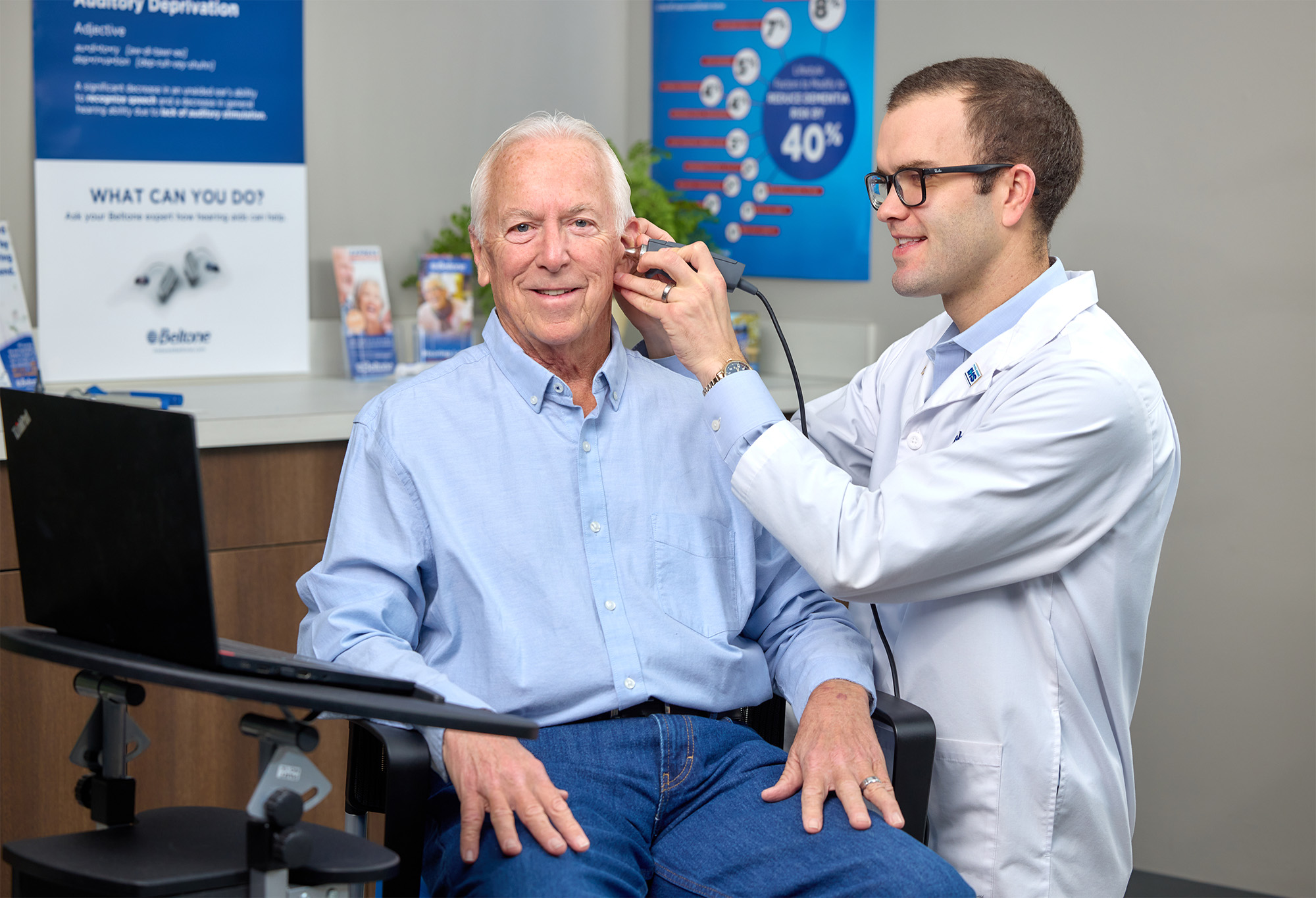Tinnitus
Treatment Program
Are you constantly hearing ringing, clicking, buzzing, humming, or another sound with no clear source? You may have tinnitus, and you wouldn’t be alone. Surveys show that between 15 to 20% of adults1 have this disruptive condition, with older adults experiencing it at higher rates.
The good news? You don’t have to suffer in (lack of) silence. Beltone’s hearing care experts are here to help. In internal patient assessments, approximately 80% of participants reported meaningful improvement. Schedule an appointment today to get tested and start your journey to better hearing!
Learn More About Tinnitus & Tinnitus Treatments
Tinnitus
Treatment Program
Are you constantly hearing ringing, clicking, buzzing, humming, or another sound with no clear source? You may have tinnitus, and you wouldn’t be alone. Surveys show that between 15 to 20% of adults1 have this disruptive condition, with older adults experiencing it at higher rates.
The good news? You don’t have to suffer in (lack of) silence. Beltone’s hearing care experts are here to help. Schedule an appointment today to get tested and start your journey to better hearing today!

What is Tinnitus?
Tinnitus is hearing noises in one or both ears, without an external source of the noise. While one of the most commonly reported sounds is ringing, it can present as a variety of other noises including: buzzing, clicking, humming, roaring, pulsing, or hissing.2 Tinnitus can range from a mild nuisance to debilitating, depending on its frequency and severity, It can also cause a variety of physical and cognitive issues including: fatigue, sleep problems, memory issues, headaches, anxiety, depression, and more
One of the most common reasons for tinnitus is damage to the sensitive hair cells in the inner ear. These cells move when sound waves pass through the ear and trigger electrical signals that the brain interprets as sound. When these cells become damaged due to age or repeated exposure to loud sounds, they can misfire — causing the brain to perceive sounds without an external source.

What Causes Tinnitus?
Tinnitus can have multiple causes, from loud noise exposure to earwax buildup, but one common cause for persistent tinnitus is age-related damage to the auditory system3.
As we age, the number of functioning nerve fibers in the ears declines. The brain attempts to fill in the gaps, which can result in the persistent sounds heard in tinnitus. This same deterioration of nerve fibers can also result in hearing loss, which is why addressing hearing loss is often a key part of tinnitus treatment.

How Can We Help?
Since the auditory and cognitive system are so closely linked, effective tinnitus care involves more than just hearing treatments — the cognitive system needs to be treated as well.
At Beltone, we take a comprehensive approach that takes the whole system into account. From advanced hearing aids, to sound therapy and neural stimulation, our experts can help you find the solution that works best for your unique situation and needs.
Experience Beautiful Silence
Early diagnosis and treatment of tinnitus can help reduce its cognitive impacts. Getting a diagnosis and starting treatment can not only reduce your symptoms, but also improve and protect your cognitive health. Start your journey to relief today with the help of our hearing care experts.
Sources
- Tinnitus (Mayo Clinic, 2022), https://www.mayoclinic.org/diseases-conditions/tinnitus/symptoms-causes/syc-20350156
- What Is Tinnitus? – Causes and Treatment. National Institute of Deafness and Other Communication Disorders (U.S. Department of Health and Human Services) www.nidcd.nih.gov/health/tinnitus#2
- Deafness and Hearing Loss: Tinnitus (World Health Organization, 2025) https://www.who.int/news-room/questions-and-answers/item/deafness-and-hearing-loss–tinnitus
